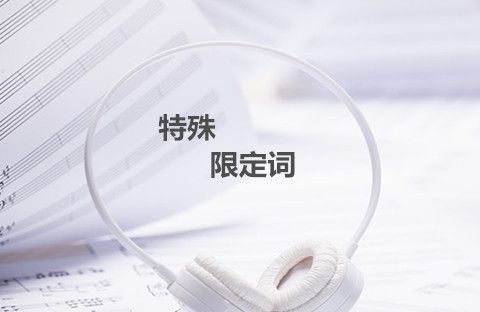特殊限定词用法比较 (一)
|
英语中,冠词、物主限定词、名词属格、指示限定词、基数词和序数词等等,都属于限定词。 今天小编与大家一起学习一些特殊限定词的用法。 一、表示“多”的限定词 表示“多”的限定词有many, much, a lot of, lots of, plenty of等。 1)many, much常用于否定句和疑问句,而a lot of等则常用于肯定句。 I haven't seen many English novels. Have you drunk much water today? I have seen a lot of / lots of / plenty of / a great number of English novels. I have drunk a lot of / lots of / plenty of / a great amount of water today. 2)many / much 既可作限定词,也可作不定代词,a lot 也可单独用作名词词组: Have you seen all these novels? ----No, I haven't done very many. You have done a lot for me. 表示“少”的限定词有(a) few, (a) little。 1)a few, a little表示"少量",带有肯定意义。 Let's invite a few friends to our party. I had a little difficulty in reading this poem. 2)few / little表示否定意义,相当于not many / much, not enough。 I have very few pens left. Could you give me some more. There is little food in the fridge. Let’s go to the supermarket. 3)quite a few, a good few, not a few表示“相当多”。 Quite a few of us are getting tired. You'll have to wait a good few days.
三、表示“一些”的限定词 表示“一些”的限定词有some, any。 1)some 是肯定词,常用于肯定句;any是非肯定词,常用于否定句或疑问句。 There are some books for me. There aren't any books for me. Are there any books for me? 2)any也常用于条件分句: If you have any trouble, please call me. 3)当说话人期待肯定回答时,some也可用于疑问句。 Would you like some cake? 4)some与单数可数名词搭配时,表示“某一”;any与单数可数名词搭配,表示“任何一个”。 Some boy has broken the bowl. Any child could answer that question. 另外,还有一些限定词,它们既可以作限定词,也常用作不定代词,如all, both, every, each, either, neither, any等,具体用法,我们一起在下一篇学习吧~ |









